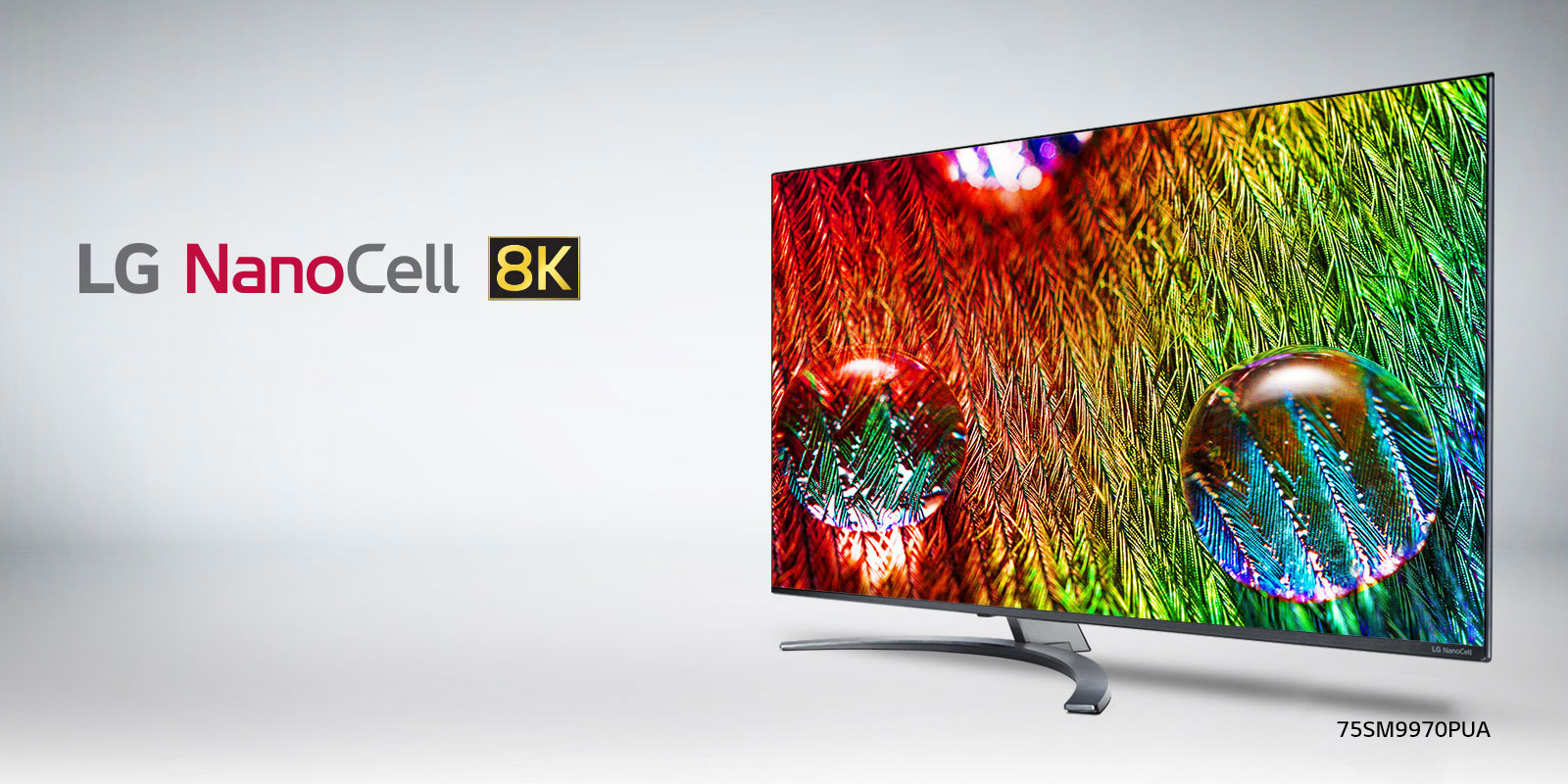
Television technology is advancing faster than ever. In the last few years, we saw the introduction of 4K resolution then 8K resolution; we saw High Dynamic Range or HDR technology appear; and now you’ll be seeing a lot more about LG NanoCell technology. What is this technology? What difference does it make to your viewing experience? Let’s dive in.
What is NanoCell technology?
In short, NanoCell is a technology from LG that’s designed to bring new intensity to the colour on your screen for more lifelike video. LG NanoCell technology features in LG’s newest 4K and 8K TV models.
What does NanoCell technology do?
NanoCell technology ensures that the resolution of your screen, whether 4K or 8K, more accurately reflects the pixel density that will effect your viewing experience. For example, you likely already know that 8K resolution is four times better than 4K. 8K resolution jams even more tiny pixels into your screen making for a sharper and more realistic image, offering 33 million pixels (7680X4320). However, to get the sense of realism you should expect from an 8K TV, it’s important that each pixel has a separate and distinct effect on the image you see.
The distinction between each pixel in part dictates how an image is rendered and how detailed it can be. According to LG, it is not just the actual number of pixels that creates the true resolution. LG NanoCell 8K promises that each pixel will impact the displayed image; this means LG’s 8K is “Real 8K.”
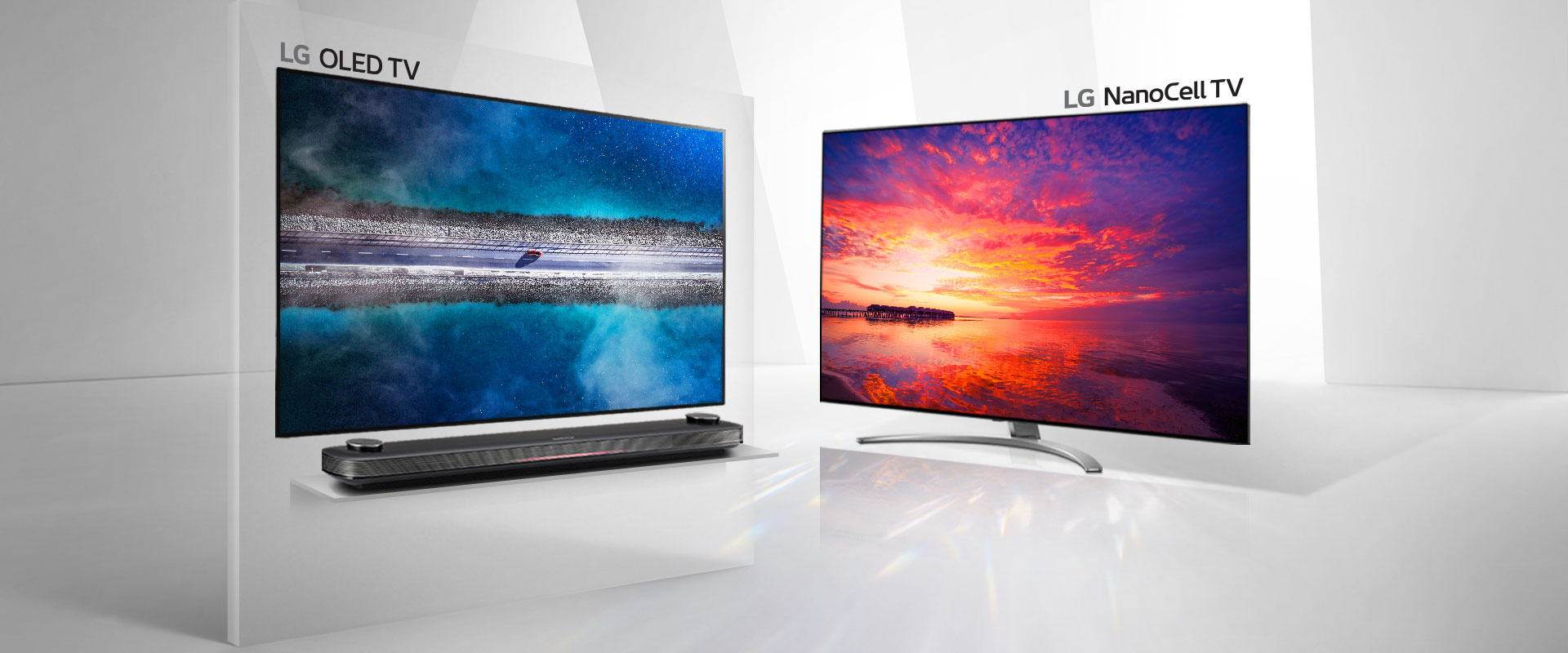 To get technical for a second, Contrast Modulation (CM) is how this pixel differentiation is measured. The higher the CM, the more precise and distinct each pixel appears in the display.
According to the folks who measure and rank things like resolution (yes, there are such people out there), when defining resolution, the CM must be 25% or more. If the display fails to meet this level, the actual resolution would be lower than real 8K. LG’s NanoCell TV delivers 8K resolution, Real 8K, having a CM of 88%!
To get technical for a second, Contrast Modulation (CM) is how this pixel differentiation is measured. The higher the CM, the more precise and distinct each pixel appears in the display.
According to the folks who measure and rank things like resolution (yes, there are such people out there), when defining resolution, the CM must be 25% or more. If the display fails to meet this level, the actual resolution would be lower than real 8K. LG’s NanoCell TV delivers 8K resolution, Real 8K, having a CM of 88%!
NanoCell TVs are designed to blend in with a room
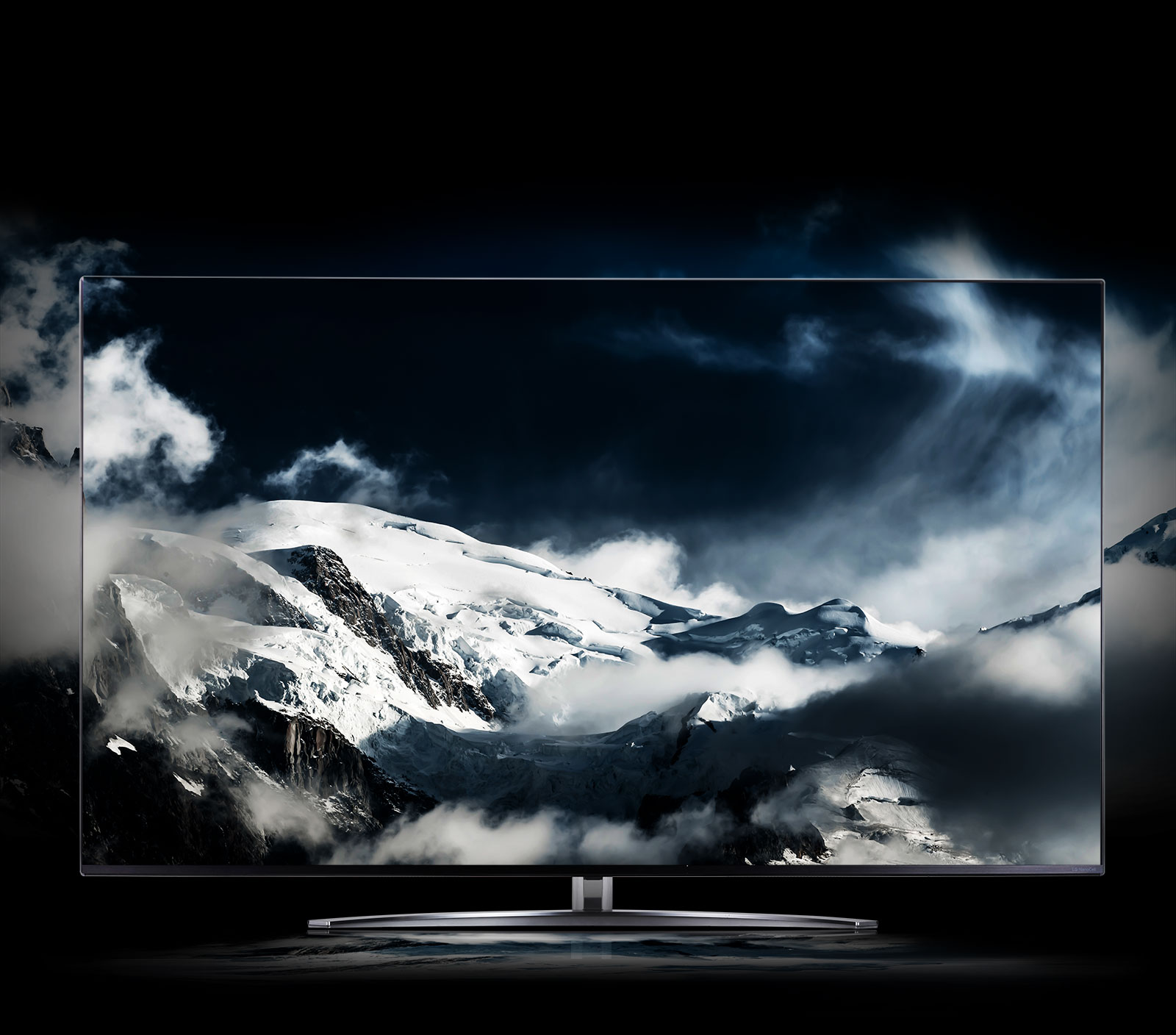 NanoCell TVs are meant to seamlessly integrate into your home, even with its large-sized screen.
These TVs have what LG terms sleek “Nano Bezels,” so you see more screen and less frame, diminishing the boundary between reality and TV.
NanoCell TVs are meant to seamlessly integrate into your home, even with its large-sized screen.
These TVs have what LG terms sleek “Nano Bezels,” so you see more screen and less frame, diminishing the boundary between reality and TV.
Computer and AI smarts for seamless 8K upscaling
LG NanoCell TVs have Artificial Intelligence built in. The AI algorithm analyzes the image quality of content to optimize the resolution for 8K. Enjoy improved clarity, sharpness, detail, and contrast with everything you watch—and you don’t need to do a thing.
Because there’s very little content being made in 8K resolution right now, upscaling is important because it lets you enjoy what content there is now, while future-proofing your TV. With the effective upscaling through the processor, NanoCell 8K transforms 2K or 4K content into the most life-like 8K picture by enhancing detail and definition. You’ll be ready when the world shifts and starts delivering more content in 8K.
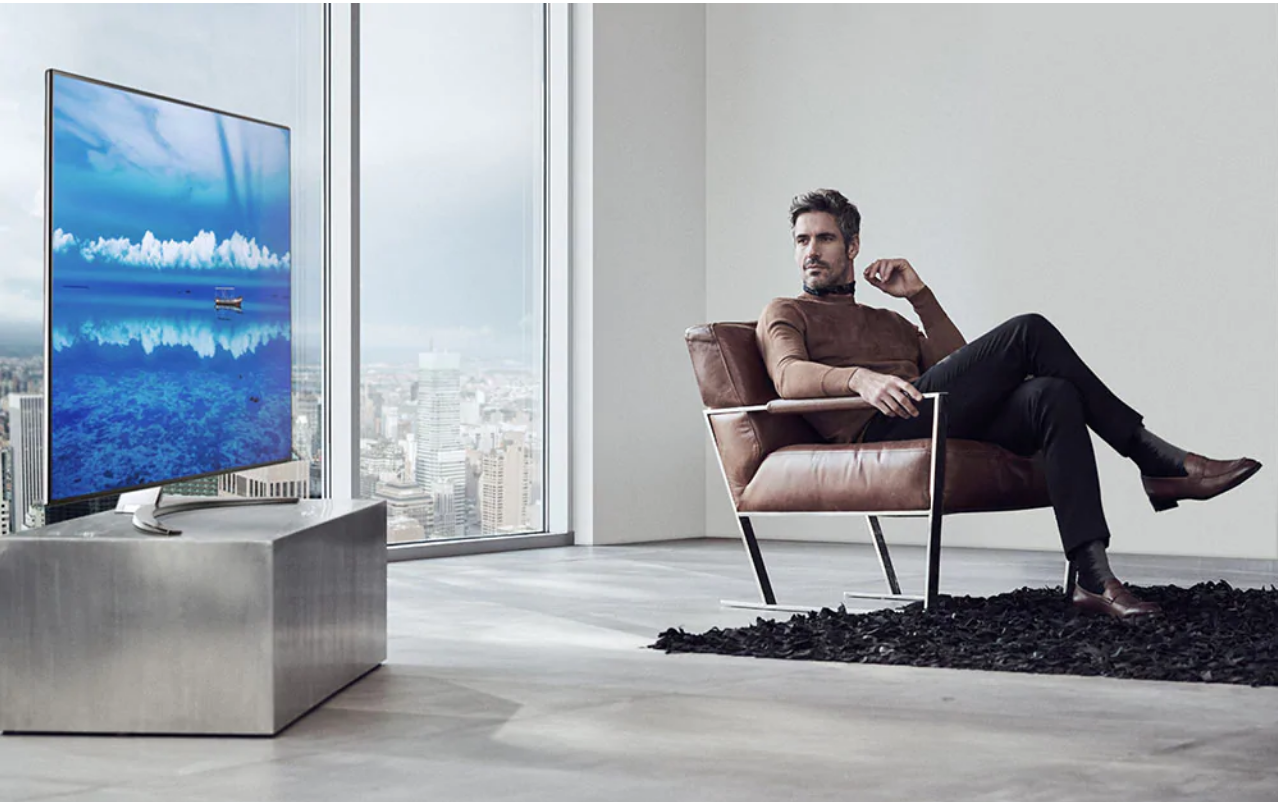 NanoCell TVs use Dolby Atmos & Dolby Vision
NanoCell TVs use Dolby Atmos & Dolby Vision
Dolby Vision is proprietary technology from Dolby labs that automatically adjusts video settings depending on ambient light conditions and content genres, so you’ll always get the best video picture. Dolby Atmos adds the technology for 3D sound, powering the addition of overhead audio channels for a much more immersive 360 degree experience.
What will I notice with 8K NanoCell TVs?
In short, with an LG NanoCell TV, you’ll notice better colour; more vibrant hues with better and more natural gradation. You’ll get a sharper overall image thanks to those 33 million pixels, and more accurate depth and contrast, meaning that even in very dark scenes, youll be able to see fine detail. Combine that with the Dolby technology and you’ll have the best video and audio experience possible—a true multidimensional movie experience.
| Product | Nano80 (exclusive to BestBuy) | Nano85 | Nano86 (exclusive to BestBuy) |
|---|---|---|---|
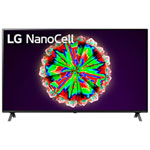 |
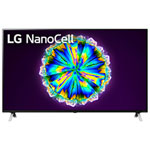 |
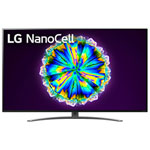 |
|
| Sizes | 49″ 55″ 65″ | 49″ 55″ 65″ 75″ | 49″ 55″ 65″ 75″ |
| Contrast | Local Dimming | Local Dimming | Local Dimming |
| Colour Technology | 4K NanoCell Display | 4K NanoCell Display | 4K NanoCell Display |
| Processor | Quad Core Processor 4K | α7 Gen3 AI Processor 4K | α7 Gen3 AI Processor 4K |
| Sound/Audio | LG Sound Sync Dolby Atmos |
LG Sound Sync Dolby Atmos |
LG Sound Sync Dolby Atmos |
| Smart Platform | LG ThinQ AI | LG ThinQ AI | LG ThinQ AI |
| Smart Features | Google Assistant Amazon Alexa Apple AirPlay 2 + HomeKit Compatibility |
Google Assistant Amazon Alexa Apple AirPlay 2 + HomeKit Compatibility |
Google Assistant Amazon Alexa Apple AirPlay 2 + HomeKit Compatibility |
| Special Features | Intelligent Voice Recognition Filmmaker Mode Sports Alert |
Face Enhancing Intelligent Voice Recognition Filmmaker Mode Motion Pro Sports Alert |
Face Enhancing Intelligent Voice Recognition Filmmaker Mode Motion Pro Sports Alert |
| Gaming Features | ALLM | VRR ALLM HGiG |
VRR ALLM HGiG |
| Product | LG Nano90 | LG Nano99 |
|---|---|---|
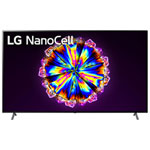 |
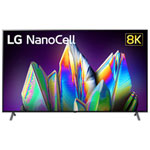 |
|
| Size | 55″ 65″ 75″ 86″ | 65″ 75″ |
| Contrast | Full Array Dimming | Full Array Dimming Pro |
| Colour Technology | 4K NanoCell Display | 8K NanoCell Display |
| Processor | α7 Gen3 AI Processor 4K | α9 Gen3 AI Processor 8K |
| Sound/Audio | LG Sound Sync Dolby Atmos?? |
LG Sound Sync Dolby Atmos?? |
| Smart Platform | LG ThinQ AI | LG ThinQ AI |
| Smart Features | Google Assistant Amazon Alexa Apple AirPlay 2 + HomeKit Compatibility |
Google Assistant Amazon Alexa Apple AirPlay 2 + HomeKit Compatibility |
| Special Features | Face Enhancing Intelligent Voice Recognition Filmmaker Mode Motion Pro Sports Alert |
Face Enhancing Intelligent Voice Recognition Filmmaker Mode Motion Pro Sports Alert |
| Gaming Features | VRR ALLM HGiG |
ALLM HGiG |




I have just purchased a laptop computer Macbook Pro from Best Buy and the employee that helped me was amazing. It was a Tuesday morning and he told me he works Friday evenings. In being so impressed with his service I want to look at T.V’s at Best Buy. I have joined the Geek Squad. I want a premium t.v. Would you recommend the LG Nano, or Samsung or Sony QLED?
Comments are closed.